
English | 中文

Six trends in actions towards sustainable development in 2021
source:goldencsr date:2021-02-03 17:25:15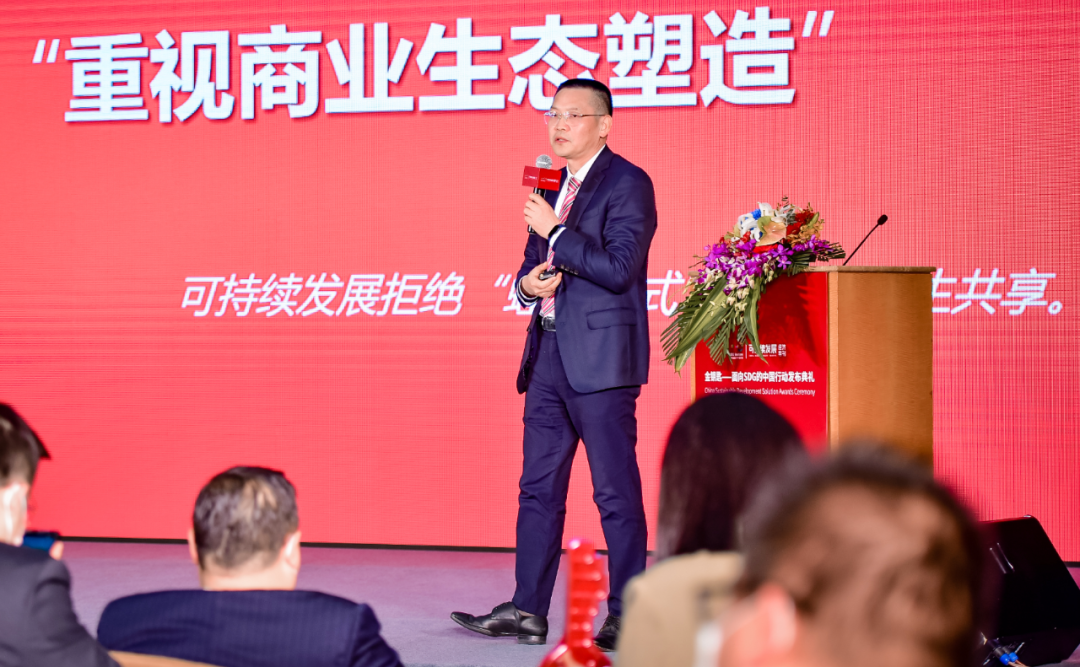
The year 2020 was full of changes and 2021 is still unpredictable, but there will always be potentiality for business to release the power of sustainability. Finding certainties among uncertainties should be the new year’s resolution for all of us.
Based on a full-year observation of 2020 and the forecast for major domestic sustainability events in 2021, Yin Gefei, founder and chief expert of GoldenBee, academic committee member of China Sustainability Tribune, announced six trends in actions towards sustainable development in 2021 at the GoldenKey - Sustainable Development Solutions Campaign launched on January 7, 2021.
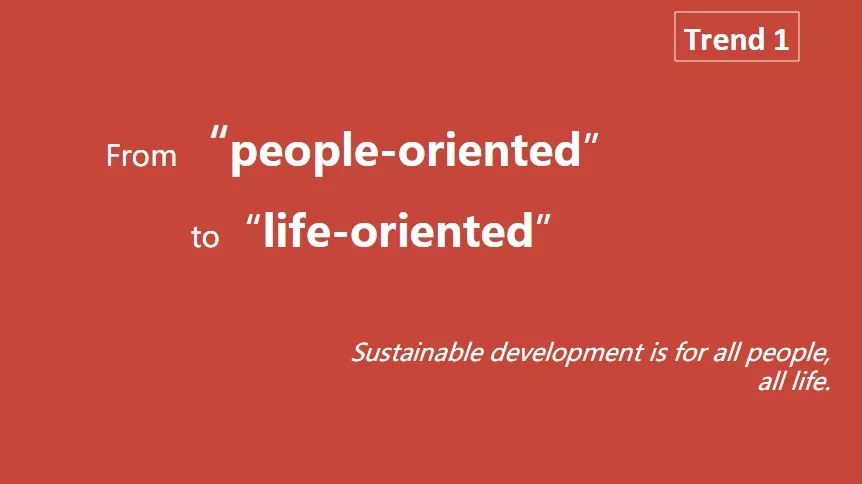
In 2020, during the prevention and control of COVID-19, some Western countries proposed the so-called "herd immunity", which actually damaged the right to life and health of vulnerable groups, including the elderly. The success of China's pandemic prevention work lies in focusing on everyone and treating everyone equally. All people, all lives are equal.
Stepping into 2021, the pandemic prevention and control become normal. "For all people, for all lives" will be the guiding principle for sustainable development.
For vulnerable groups, more help and inclusive policies are needed to show our respect; for workers maintaining the basic social operation, especially the takeaway riders and couriers, more care is needed for them to have decent jobs and be better integrated into urban life.
The pandemic is also a warning to humanity. We need to reflect on the relationship between human beings and other lives. Shift from "people-oriented" to "life-oriented" and build a community for all life on earth is the right way to achieve sustainability.
No one behind -- the core of UN SDGs, is no way abstract.
Key words: herd immunity, equality and inclusion, flexible working, decent work, biodiversity conservation, community for all life on earth
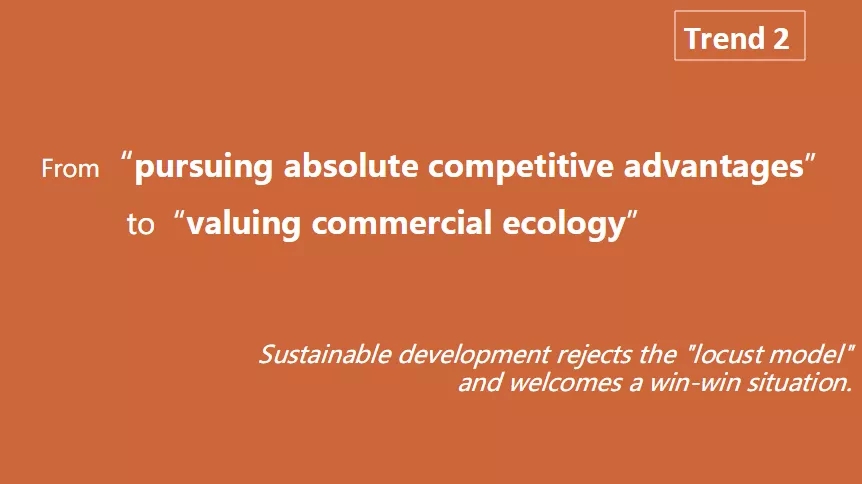
In 2020, along with the spread of COVID-19, a plague of locusts also caused a big trouble worldwide. Locusts are often used as a metaphor for large companies that, in pursuit of absolute competitive advantages, swallow up market participants, partners, and even small businesses. The large companies are likely to survive at the expense of countless business failures.
In 2020, anti-monopoly was highlighted in the Internet field. In mid-December, requirements on anti-monopoly and capital expansion in platform economy were reiterated at the Central Economic Working Conference and included in the focus of China's economy in 2021. To this end, strengthening anti-monopoly and protecting fair competition and innovation in the market is not only an important task for the government, but also the core for influential enterprises.
Key words: anti-monopoly, fair competition, win-win situation, high-quality innovation
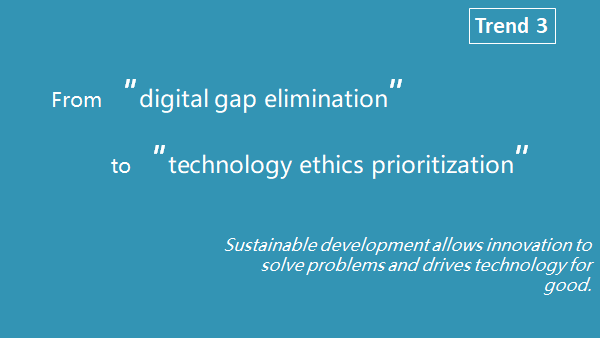
Technology is like a double-edge sword. While it helps make COVID-19 prevention and control work more accurate and more efficient, it creates gaps for many people. For example, the health code once “trapped” the elderly,and the security of the data taken from people for the contact-tracing purposes need to be strengthened.
In pursuit of sustainable development, technology innovation will not only solve the problems but should also be able to serve and protect everyone. Therefore, it is essential to prioritize the ethical issues in technology and to ensure innovation is only for a better life.
In the digital era, big data platform applications can be seen everywhere. Only by prioritizing the ethical Issues in technology can we ensure that the purpose, process and application of technology innovation are under compliance and are ethical, thus to avoid and manage the negative impact that might occur.
Key words: big data, AI for SDG, tech for good, privacy protection, algorithm bias

In 2020, China promised to hit carbon peak emissions before 2030, and for carbon neutrality by 2060. What impacts will these goals and commitments have on business community?
If, before these commitments, low carbon development is the discretionary responsibility, from 2021 it will become enterprises’ obligatory responsibility.
Improving the level and capability to fulfill the "carbon responsibility" is a must for enterprises to follow the new trends and improve their core competitiveness. Low-carbon development and carbon-neutrality will help with climate change and cultivate the basic ability to win the first opportunity in the global market. It is also a competition between countries and enterprises in technology and markets.
Key words: peak carbon dioxide emissions, carbon neutrality, renewable energy, low-carbon, carbon labelling, carbon tariff
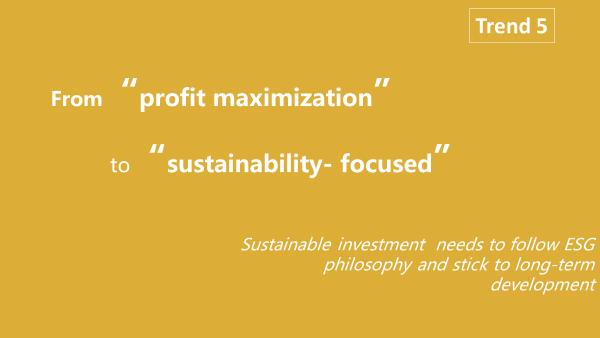
In 2020, the concept of ESG caused a hit wave in investment industry. A comprehensive standard that evaluates economic, social and environmental performance is replacing short-term financial performance standards. It can be expected that in 2021 and afterwards, investment will shift from “maximizing profits” to “sustainability-focused”, following ESG philosophy and adhering to long-term principle.
Although ESG investment in China has not yet become the mainstream, the value and potential of ESG investment has been recognized by more and more investors and asset managers.
A new round of inequality caused by technological and social development is gradually increasing, with climate changes and biodiversity loss intensifying. Taking full account of factors such as environment, society and corporate governance ability in investment decision-making will become an effective way for capitals to avoid risks and build a more prosperous, green and inclusive world.
Key words: sustainable finance, ESG, capital for good, social value investment, impact investment
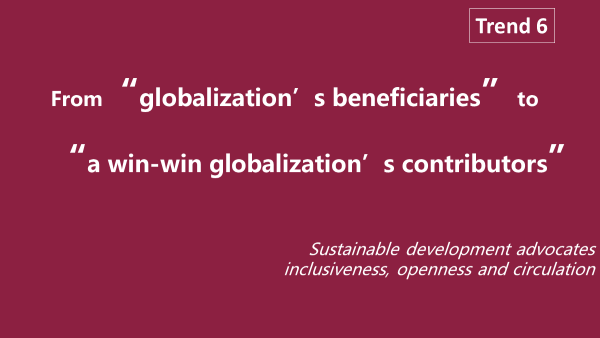
In 2020, globalization faced many challenges. Therefore, we call for a new type of globalization that is more future-oriented and sustainability-focused, with the aim of the all-round development of mankind, advocating green development, inclusiveness, openness and circulation.
In 2021 and the future, enterprises need to shift their roles from "globalization’s beneficiaries" to "a win-win globalization’s contributors".
To contribute to a win-win globalization, apart from striving to solve common challenges that the humanity faces, enterprises need to balance the global supply chain development and local suppliers’ needs. Sticking to this principle, Chinese enterprises will be easily understood when going global and will be accepted for localization.
Key words: sustainable development and new globalization, globalization and localization, openness and circulation, supply chain management